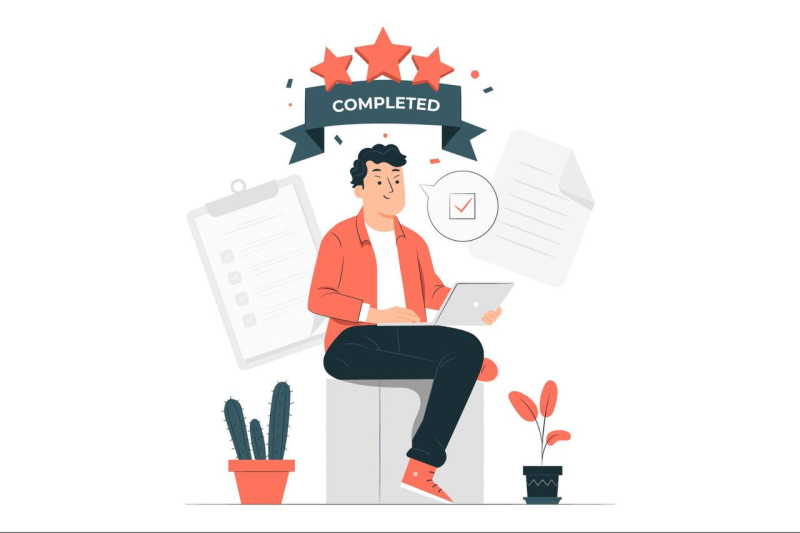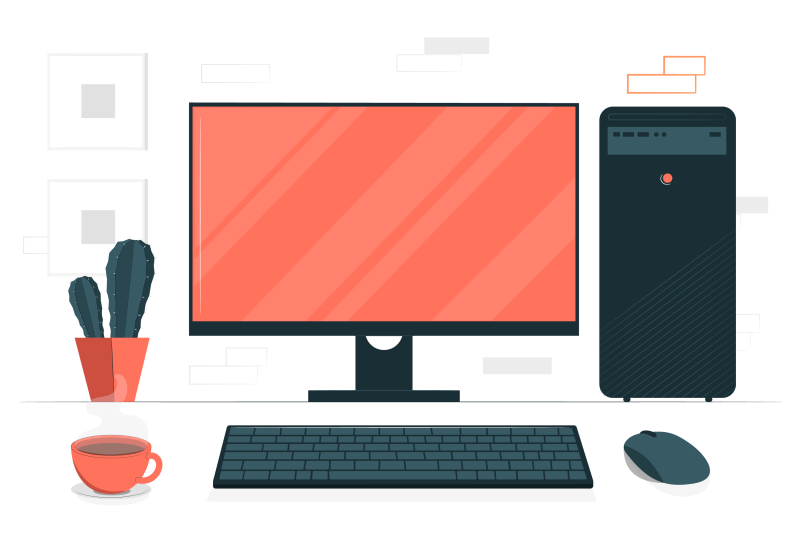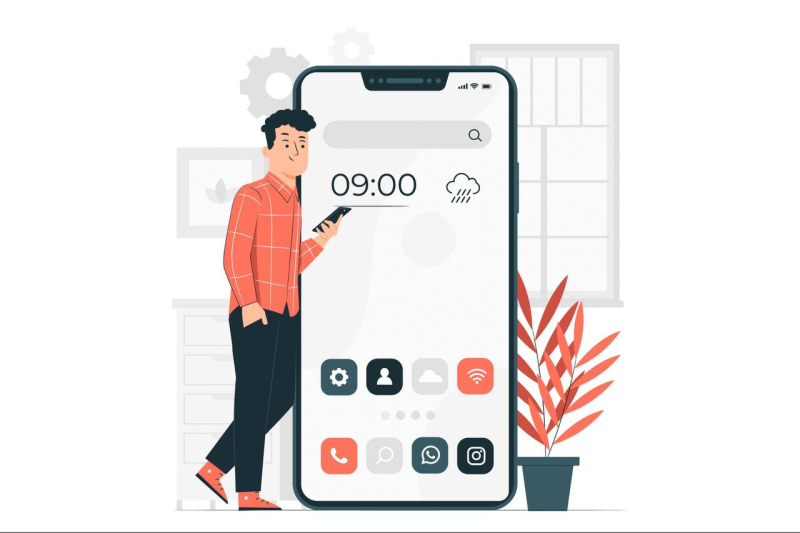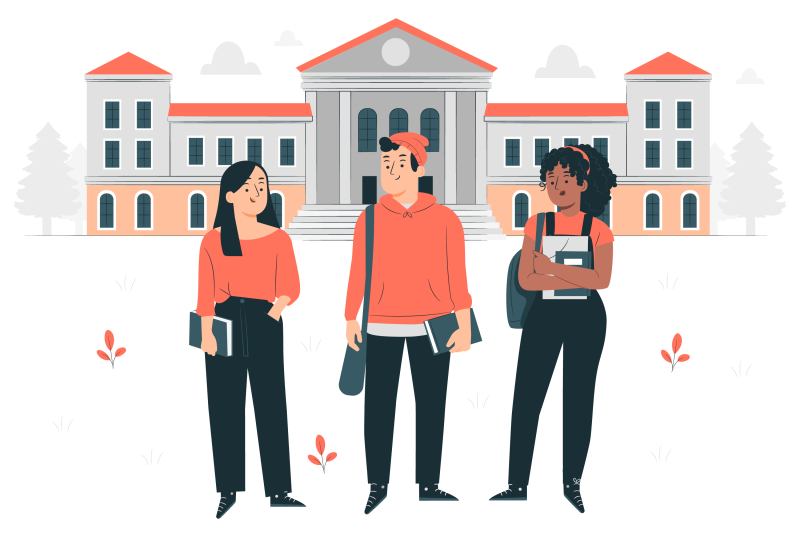Contents:
First and foremost, you need to understand that it is completely normal to feel worried before a test. A little stress can be stimulating and motivating, but only if it does not grow into severe anxiety, when the only thing you can think of is upcoming exams.
Here are some strategies that may help you relieve exam-related stress:
Create a study plan
The best way to start is to set your exam timeline and schedule your study sessions. Do not try to do too much all at once, but rather set your priorities and start with the topics you know best.
If you do not have much time on hand, try to split up your studying over the course of days: for instance, you can learn all it takes to receive a bare minimum on your first day, hustle for an above-average level on the second day, and leave all the hardest topics for the third day (if you have one).

Credit: storyset / freepik.com
Prep your workspace
You will not be able to stay focused while studying unless you remove all distractions and set up a study environment for yourself.
- Do not forget to air your room when studying;
- Set up the right lighting for your study area;
- Try to make your study area quiet;
- Switch up locations. It might be that coworking spaces or libraries will work better for you than your apartment or dorm.

Credit: storyset / freepik.com
Get enough sleep
It may seem like sacrificing a little sleep to study a few more hours will help you prepare better, but research shows that sleep is integral to memory formation. Scientists from MIT have found that students who had a good night’s sleep regularly performed significantly better than those who had insufficient and irregular sleep. The study involved 100 people. The researchers used the Fitbit wearable activity trackers to track sleeping metrics of the subjects.
Also, napping in the afternoon can help you rejuvenate and recall information better; however, to make waking up easier, you should fall asleep before 3 PM and nap for no more than 20-30 minutes.

Credit: storyset / freepik.com
Eat well
Another thing you should not neglect is food. The brain accounts for around 20% of the body's calorie consumption, so skipping meals is not an option if you want to study efficiently.
Nutrition experts from the Harvard School of Public Health encourage people to follow the principles of the Healthy Eating Plate, according to which half of your plate should have fruit and vegetables, one quarter should be whole grains, and another quarter – proteins.
There are also certain foods that can boost your brain functions, such as dark berries (blueberry, blackberry, or blackcurrant). One study found that people who had blueberry juice daily for 12 weeks showed better cognitive abilities than those who took a placebo.
Take quality rest
A change of scenery is good for recharging your batteries. But it will not work if all you do is go from cramming all day to doomscrolling and chatting with your friends about upcoming exams. What you really need is to put your phone away and go outside – alone or with friends.
Naturally, there is no one-size-fits-all piece of advice for all: while introverts will recharge better away from action, extroverts will benefit more from active rest.
Calm your mind
And what to do about procrastination? You should stop beating yourself up for not doing anything or putting off studying for an exam. For starters, you need to reflect on why you keep postponing it. Is it because of your future major that your parents insisted on? Or is there any other reason holding you back? You should figure out why you personally want to get into a university and what you want to get from it.
Another symptom of procrastination is black-and-white thinking, which manifests itself in mindsets like If I do not get in, my life is ruined or I must get an A on this exam. Such assertions do not give you a motivational push but rather make you postpone tasks to avoid negative thoughts. If this sounds like a problem you’ve experienced, try to move away from I-have-to narratives and examine your personal motivations.

Credit: storyset / freepik.com
What else helps with stress and anxiety is focusing on the physical: you can do exercises at home or outside, ride a bike, or do some stretching. Whereas breathing techniques will help you reduce muscle tension, boost attention and mood, and reduce fatigue:
- Progressive muscle relaxation. This is a simple practice of tensing and then relaxing your muscles, one by one. You can start with your head and neck and gradually move to your toes. All you need to do is to tense your muscles for 5 seconds, then relax them for 30 seconds, and repeat.
- Visualization. In this relaxation technique, you need to envision a nice, peaceful location or situation you want to teleport yourself into using as many senses as you can: smell, sight, hearing, or touch. If you, say, are picturing an ocean holiday, try to focus on the smell of salt water, the music of waves, and the feel of warm sand.





